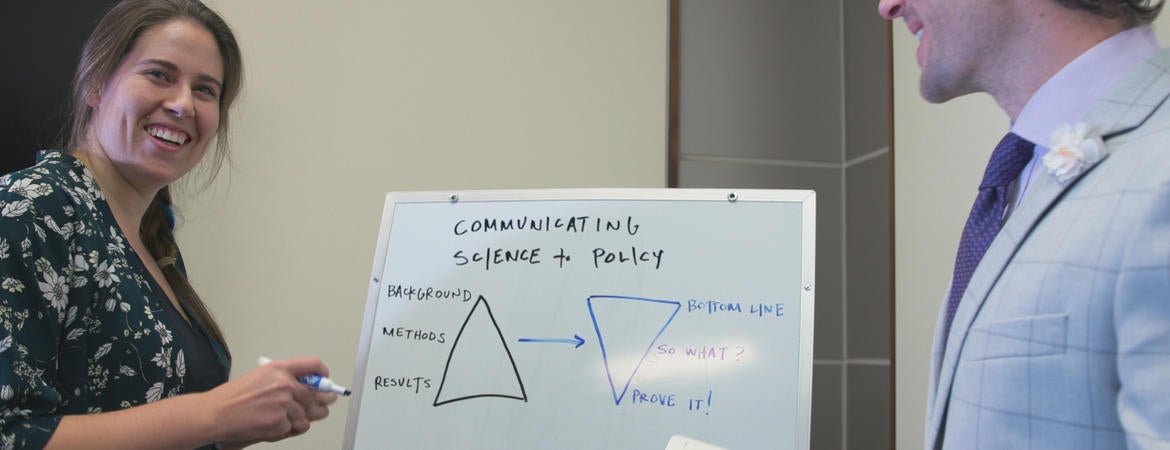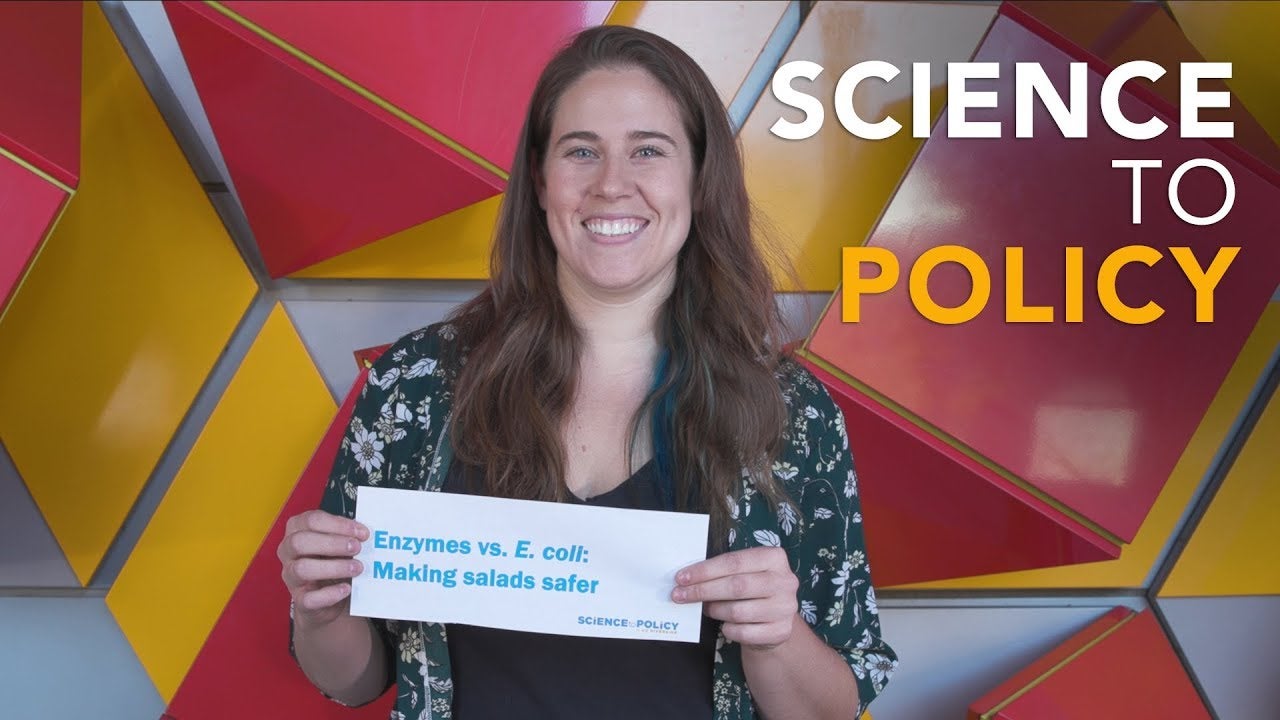
A new program at the University of California, Riverside connects graduate students with the tools and skills to effectively communicate with policymakers to promote scientifically sound public policy.
The Science to Policy, or S2P, program trains graduate students in science communication and the legislative process, then prepares them for competitive science and technology policy fellowships within the state or federal government. S2P is preparing to select the first cohort of students who will participate in this training and receive the Graduate Certificate in Science to Policy through weekly workshops this winter quarter.
UC Riverside’s certificate is the first of its kind on the West Coast, and one of only a few formal graduate student training programs in science policy nationwide.
“Science, technology and medicine increasingly impact our daily lives,” said Susan Hackwood, director of the program. “But science is complex, and it can be easily misunderstood, distorted, or mischaracterized.
“In the S2P program, we intend to help graduate students in the STEM disciplines cultivate a knowledge base and tangible skillset they can use to translate their science into public policy or transition into policy careers.”
Less than half of graduating STEM doctoral students will be employed in academic careers, but there is a dearth of opportunities to identify mentors, expand networks, or practice skills for a non-academic career during graduate school. S2P offers students the opportunity to be prepared for a career in science policy.
The S2P Certificate program is modeled, in part, after the highly successful California Council on Science and Technology, or CCST, fellowship program, which trains and places Ph.D. scientists in state legislative offices to serve as scientific advisors.
Launched in spring 2018, Science to Policy has rolled out a series of workshops, seminars, and networking opportunities that have gained the attention of hundreds of Southern California graduate students in the sciences and engineering. This fall, S2P partnered with the American Association for the Advancement of Science, or AAAS, to host the first West Coast Catalyzing Advocacy in Science and Engineering Workshop at UCR, adapted from the highly competitive annual event in Washington, D.C. The workshop included a dialogue about the legislative process with former CCST Fellows and training from AAAS staff on how to effectively communicate science to policymakers.
Science to Policy was founded by two doctoral students, Holly Mayton and Drew Story, and is now led by an interdisciplinary group of graduate students in natural and social sciences and engineering. Mayton is a doctoral candidate in chemical and environmental engineering and Story is now a AAAS Congressional Science and Technology Policy Fellow in Washington, D.C.
“As graduate student scientists and engineers who have dedicated ourselves to answering hard questions in science, I think that many of us have found that it feels like our duty to also ensure that the answers to those questions are translated into solutions for the real world. Getting young scientists to be knowledgeable and involved in government and public policy is one of the most salient opportunities to do that,” Mayton said.
The program has grown significantly with the leadership of Hackwood, a professor of the Graduate Division and Edward A. Dickson Emeritus Professor at UC Riverside. She is also dean emeritus of the Marlan and Rosemary Bourns College of Engineering. Until July 2018 she was the executive director of CCST. Hackwood has worked extensively with industry, academia, and government partnerships to identify policy issues of societal importance.
“UCR is an ideal home for the S2P program,” Hackwood said. “With first-class research and a cadre of motivated students, we can directly help policy makers make informed decisions.”
To learn more about the Science to Policy Program, visit sciencetopolicy.ucr.edu.




